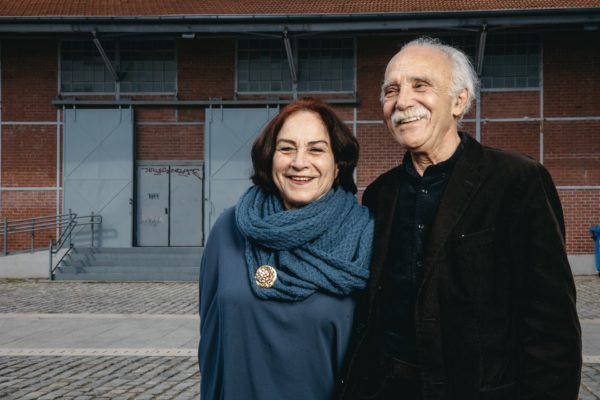For Michel Warschawski, the impression was instant.
He was watching activists protest their Israeli government. Then he spotted “a short, little woman, beautiful” in mini-skirt and boots. She clanged keys and yelled curses – ”words I’d never heard before …. I was speechless.”
He promptly joined the group; a year-and-a-half later, he and Lea Tesemel started dating. Now, 50-some years later, they’re still together (shown here) — married, with two kids and seven grandkids. At 75, she’s a busy lawyer — profiled in “POV: Advocate,” at 10 p.m. Monday (July 27) on PBS (check local listings) – who keeps tackling impossible missions.
Tsemel is an Israeli who defends Palestinians accused of terrorism. “We always lose,” she once said.
Even in defeat, she draws rage. She’s been called “traitor,” “leftist” and “devil’s advocate.” One stranger flashed a gun at her; another, when she was pregnant, said: “May you give birth to a monster.”
Her reputation keeps growing. “I imagined you differently – taller and tougher,” a TV interviewer said.
Well, she may have had her tough moments in court … and in combat.
When war broke out in 1967, Tsemel volunteered for the army. She’s been told that she was the first Israeli woman to reach the Wailing Wall.
But in peacetime, she said, her enthusiasm vanished. “They said it was a war for peace; in my naivite, I believed it.” (Quotes here are from the film.)
Then she began to feel it had been a war for domination. She defended Palestinians … even when they admitted to heinous acts.
That’s where this film focuses: Two Palestinian teens, wielding knives, chased Israelis. One, 17, critically wounded a boy, then was shot and killed by police. The other, 13, became Tsemel’s client.
She argued that his knife had never been used, that his only intent had been to frighten. The prosecution argued that he was part of an attempted murder.
It was a case that stirred hatred, toward her client – “die, you maniac,” people shouted, after he was hit by a car while running away – and toward Tsemel. One courthouse person called her “a rebel with a lost cause.”
Well, usually lost. There have been small victories – a reduced sentence, an Israeli Supreme Court ruling on torture – amid a cascade of defeats. “I’m a very angry, optimistic woman,” Tsemel said.
With her husband – a writer and activist who once was sentenced to 20 months in prison for publishing a book on withstanding Israeli torture techniques – she persists. “I can’t do anything else,” she said. “I believe in it.”
